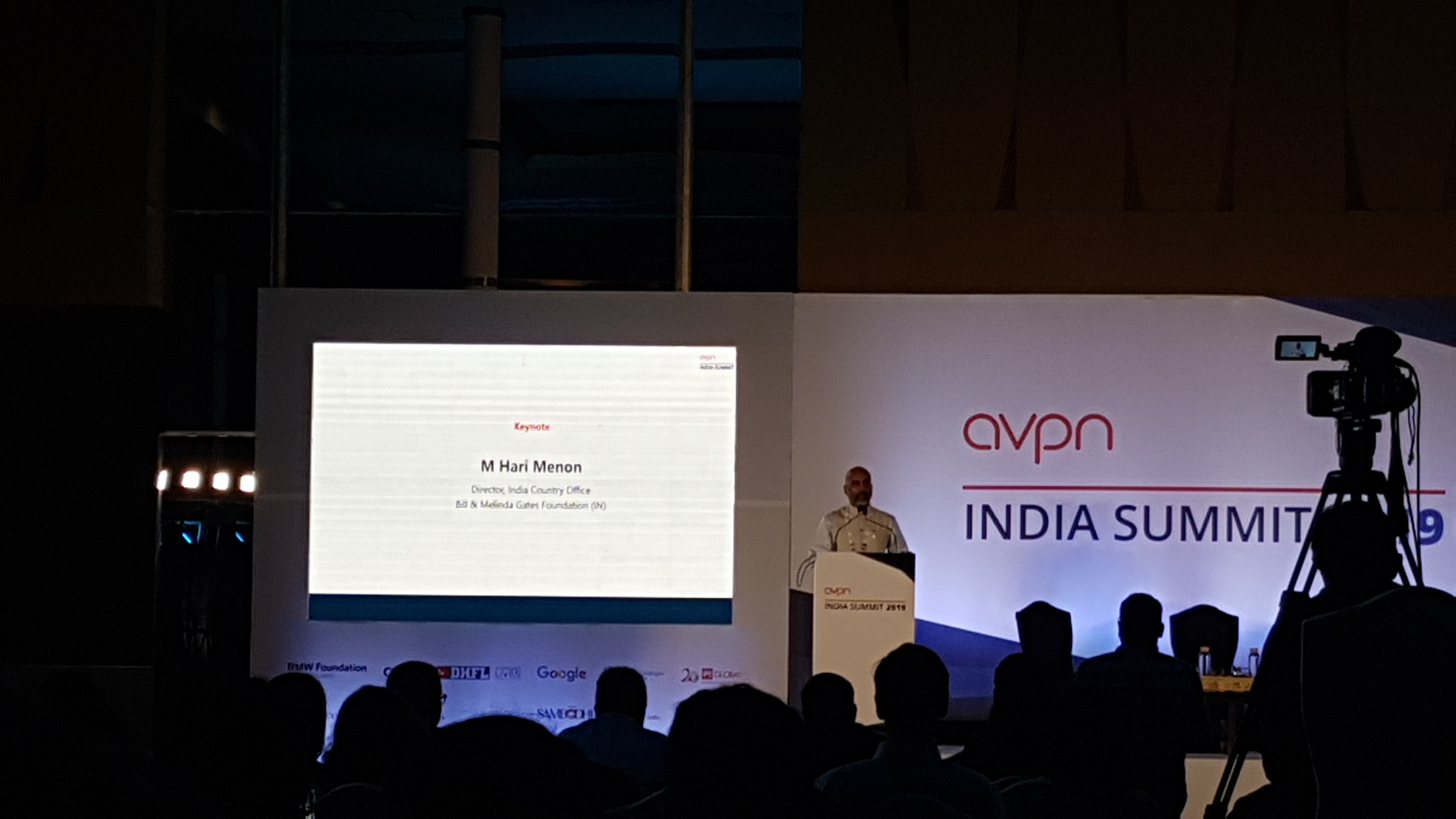ANGIN Investment’s Benedikta Atika had the opportunity to attend AVPN Summit India 2019 on the 28th of November 2019 in Bengaluru. Following the growth of India as the most advanced markets in Asia, the summit aimed to gather diverse resources across the sectors to sustain impact.
The event was well-attended by different groups, ranging from global private foundations (e.g. Rockefeller Foundation), impact investors (e.g. Unitus Capital), corporations (Mastercard), ecosystem builders (e.g. UnLtd), family offices, and other ecosystem players. Most of the attendees are India-focused organizations, while some of them were learning about Indian market.
Various topics were discussed during the conference, from technology for social impact, trends in impact investment, to impact investment opportunity in water sector. Benedikta Atika attended several sessions during this one-day seminar, including Leveraging Data & Technology for Social Inclusion, Gender Lens Investing in India and Creating a Viable Ecosystem for Social Businesses.
As what we have done previously in the previous summit in Myanmar, here are some key insights we learned during this summit:
Impact measurement is a feedback loop
During his keynote speech, Hari Menon, Director of Bill and Melinda Gates Foundation India, shared an interesting insight of impact measurement. Impact measurement is all about feedback loop, to see what has worked and what to be improved. He said, powerful measurement should contain stories of failure. This would allow the organization to step back and learn, so that they could improve better.
The need of looking deeper in gender lens investing (GLI)
Post-investment GLI is often overlooked. GLI is mostly discussed during the pre-investment, for example, identifying women beneficiaries whether they are the owners/leaders or the customers. However, many people forget to look deeper during the post-investment, for example in ensuring the life quality for women in the value chain. There is also an issue in viewing how “equality vs equity” works in GLI. People usually only look at number of women in the organization to measure gender balance, and there’s less focus on the power or quality that women can gain.
The importance of data to achieve social inclusion
Living in the technology era, data is currently the most valuable asset, including in achieving social inclusion. Mastercard, Rockefeller Foundation, and Mindtree shared their challenges and opportunities in leveraging data to impact millions of lives. One initiative is a platform that help people understand the risk of data sharing. It sounds simple, but this issue is often overlooked by general public. There is a need to improve our thinking to go beyond what we usually do with data.
ANGIN is grateful to have the opportunity to keep learning from others and to build relationship with the players. We look forward to more AVPN activities in the future and exploring collaboration in Asia’s social investment ecosystem.





